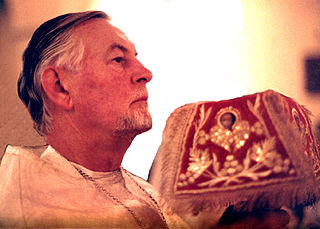A Quote by Alexander Schmemann
It seems to me that any ideology is bad because it is inevitably reductive and identifies other ideologies as evil, and itself with truth, whereas both truth and goodness are always transcendent.
Related Quotes
Goodness has no opposite. Most of us consider goodness as the opposite of the bad or evil and so throughout history in any culture goodness has been considered the other face of that which is brutal. So man has always struggled against evil in order to be good; but goodness can never come into being if there is any form of violence or struggle.
Not the violent conflict between parts of the truth, but the quiet suppression of half of it, is the formidable evil; there is always hope when people are forced to listen to both sides; it is when they attend to only one that errors harden into prejudices, and truth itself ceases to have the effect of truth, by being exaggerated into falsehood.
Things that are good are good, and if one is responding to that goodness one is in contact with a truth from which one is getting something. The truth is doing us good. The truth of the sunshine, the truth of the rain, the truth of the fresh air, the truth of the wind in the trees, these are truths. And they are always accessible!
No ideology can help to create a new world or a new mind or a new human being -- because ideological orientation itself is the root cause of all the conflicts and all the miseries. Thought creates boundaries, thought creates divisions and thought creates prejudices; thought itself cannot bridge them. That's why all ideologies fail. Now man must learn to live without ideologies religious, political or otherwise. When the mind is not tethered to any ideology, it is free to move to new understandings. And in that freedom flowers all that is good and all that is beautiful.
Truth is always stranger than fiction. We craft fiction to match our sense of how things ought to be, but truth cannot be crafted. Truth is, and truth has a way of astonishing us to our knees. Reminding us, that the universe does not exist to fulfill our expectations. Because we are imperfect beings who are self-blinded to the truth of the world’s stunning complexity, we shave reality to paper thin theories and ideologies that we can easily grasp – and we call them truths. But the truth of a sea in all it’s immensity cannot be embodied in one tidewashed pebble.
In the most general terms, the Enlightenment goes back to Plato's belief that truth and beauty and goodness are connected; that truth and beauty, disseminated widely, will sooner or later lead to goodness. (While we're making at effort at truth and goodness, beauty reminds us what we're hold out for.)
The greatest, like Rembrandt, paint a gallant, a hag, and a carcass with equal passion and rapture; they love the truth as it is. They do not admit that anything can be ugly or evil; its existence justifies itself. This is because they know themselves to be part of an harmonious unity; to disdain any item of it would be to blaspheme the whole. The Thelemite is able to revel in any experience soever; in each he recognizes the tokens of ultimate Truth. It is surely obvious, even intellectually, that all phenomena are interdependent, and therefore involve each other.
The truth is that there are no good men, or bad men,' he said. 'It is the deeds that have goodness or badness in them. There are good deeds, and bad deeds. Men are just men - it is what they do, or refuse to do, that links them to good and evil. The truth is that an instant of real love, in the heart of anyone - the noblest man alive or the most wicked - has the whole purpose and process and meaning of life within the lotus-folds of its passion. The truth is that we are all, every one of us, every atom, every galaxy, and every particle of matter in the universe, moving toward God.
There's a stronger and more kind of controversial element of Plotinus' view of matter, which is that he actually identifies it with evil, or at least the principle of evil, and the reason for this is that he thinks that the the One, the highest principle, can also be thought of as the Good, and that's kind of surprising like, because he has this negative theology which doesn't allow us to say anything about the One. But he believes that it can be seen as the principle of goodness as well as unity, and that if you think about it, goodness and unity sort of go along with each other.





































